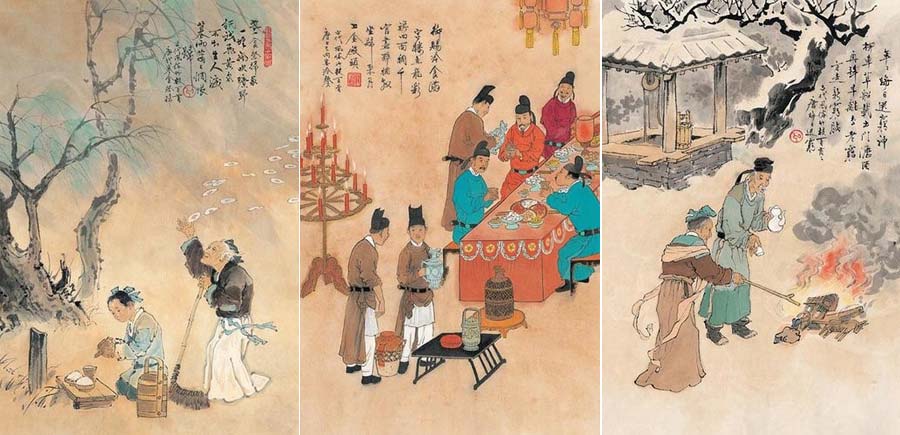A recent survey on holiday schedules during Spring Festival conducted by China's Renmin University stirred discussion among netizens. More than 70% of the participants wanted New Year's Eve to be included in the three-day lunar new year statutory holiday.
The holiday is important for working people who have worked strenuously for a whole year. What was the Spring Festival vacation like in ancient China? Let us take a look.
Tang Dynasty:
 |
|
The paintings depict the folk customs during the Spring festival in ancient Tang Dynasty. [Photo/Xinhua] |
Emperor Xuanzong in the Tang Dynasty stipulated that ancient officials enjoy 7-day holidays during the Chinese Lunar New Year and Winter Solstice Festival, so there were two "golden weeks" in one year.
The 7-day holiday in the Tang Dynasty started from three days before New Year's Day and lasted for three days after New Year's Day.
Teachers and students in old-style private schools, however, could take their vacation in advance and their holiday could last for a whole month. Most common people, like peasants, never had holidays. They had to sweat on the farmland all the year if necessary.
There were also some rules for officials in the Tang Dynasty that might have disturbed them from enjoying a complete holiday. One of them was that all senior officials had to go to the imperial palace and pay New Year's visits to the emperor early on the morning of the New Year's Day. Then many officials were not able to spend the day with their families, or they had to first meet the emperor before gathering with their families.
Another rule was that the magistrates were not allowed to leave their offices during Spring Festival, so they could only gather with their families in their working places if they wanted to.
During the Emperor Dezong period, there were almost no holidays for senior officials during Spring Festival, who had to take turns going to court, according to odd or even numbers.